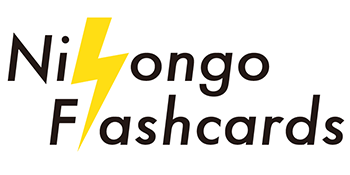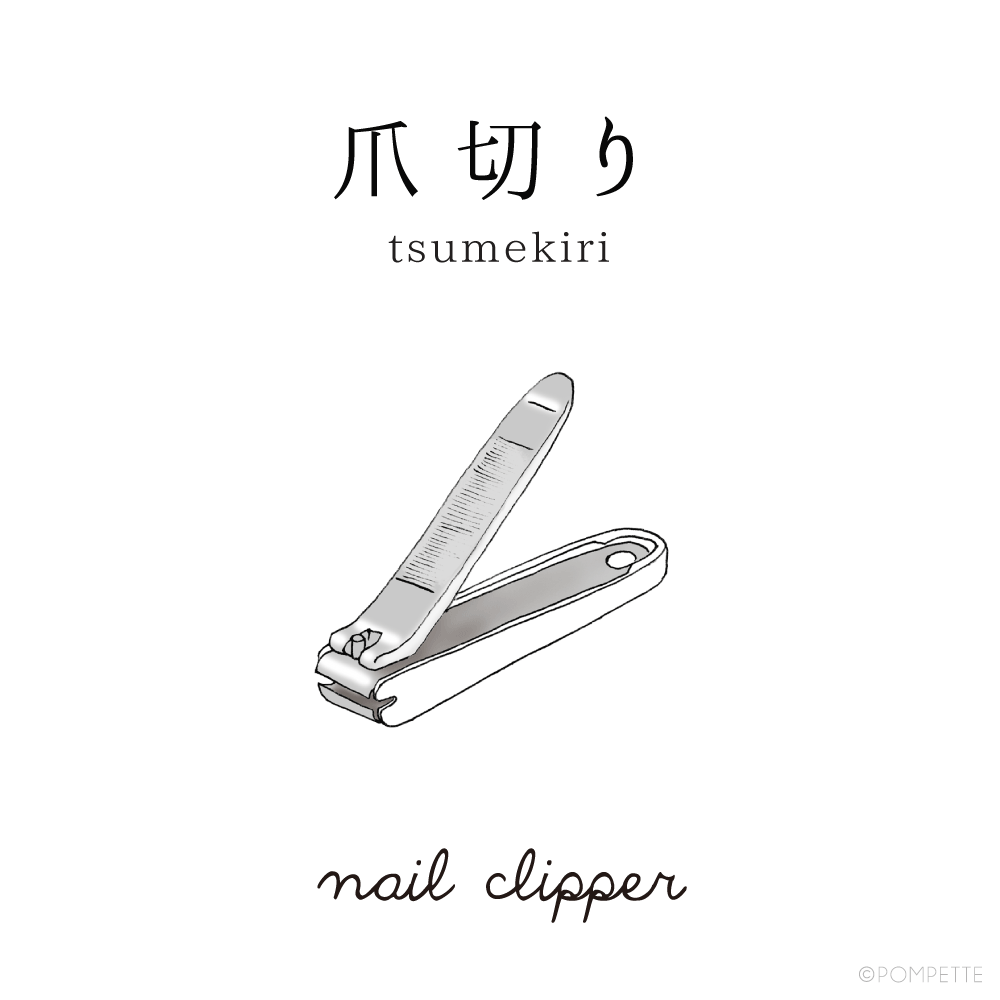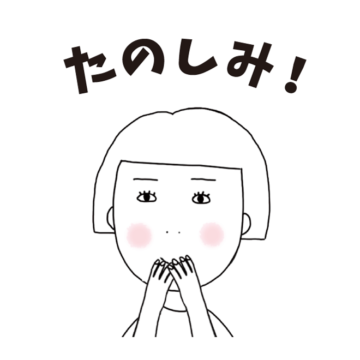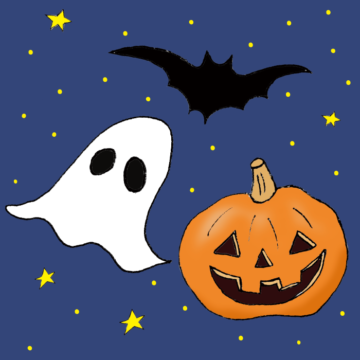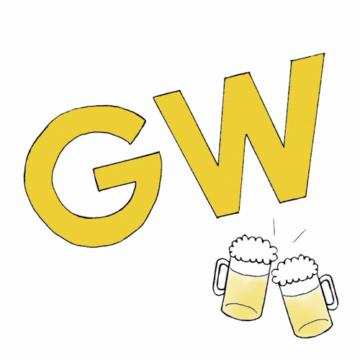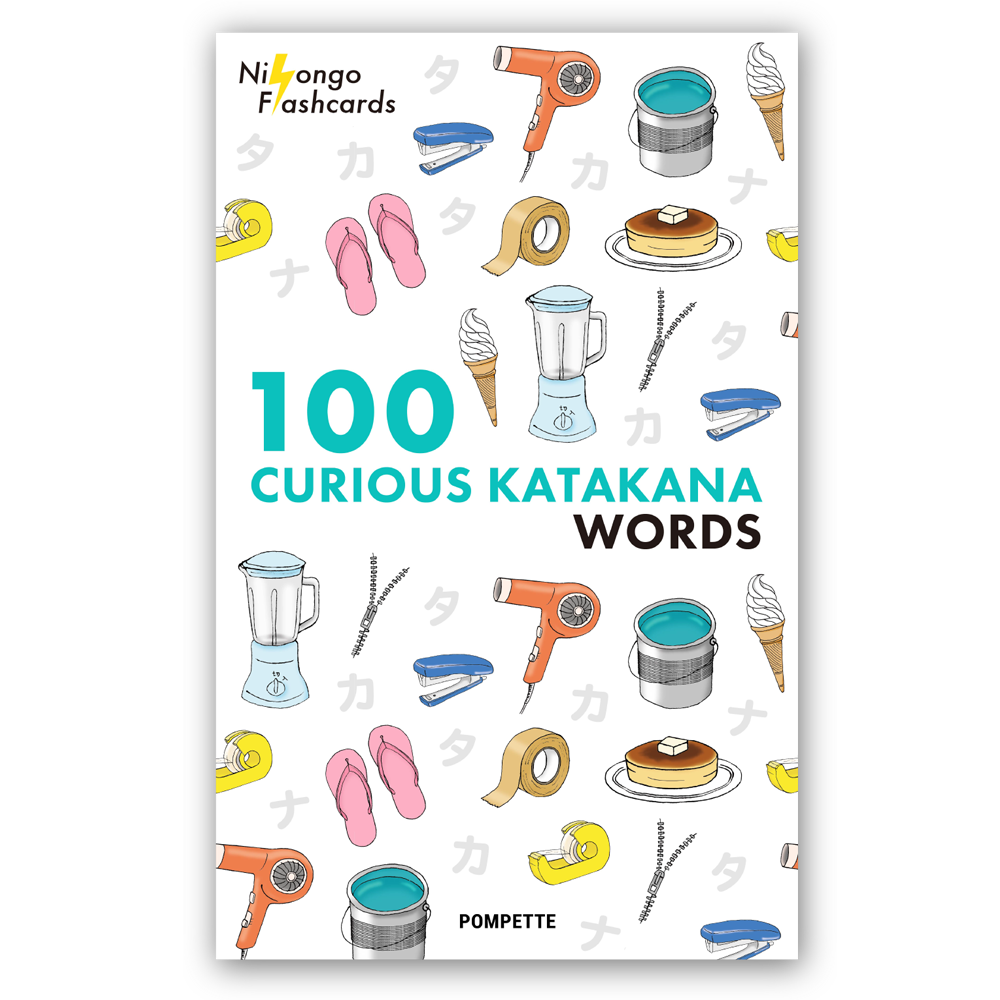【 爪切り・tsumekiri 】nail clipper
The オノマトペ onomatopoeia for the sound of clipping nails is
パチンパチン (pachin pachin)
or
パチパチ (pachi pachi).
These オノマトペ didn’t exist pre-nail-clipper days because up until the Edo era, farmers used a ノミ(nomi) chisel, and samurai used their 短刀(たんとう, tantō) dagger to trim their nails. (With a knife, it would be more like peeling an apple.)
Then came the 爪切(つめき)り専用(せんよう)ハサミ nail scissors in the 明治 Meiji Era, followed by ニッパー式(しき)爪切りnail nippers in the 大正 Taisho Era.
It was only after WWII in the 昭和 Showa Era that the modern-type クリッパー式爪切り nail clippers popularized.
There’s an old saying in Japanese,
夜(よる)に爪(つめ)を切(き)ると親(おや)の死(し)に目(め)に会(あ)えない。
(yoruni tsumewo kiruto oyano shinimeni aenai)
The literal translation is,
“You shouldn’t clip your nails at night, or you won’t be able to be with your parents when they pass away.”
In other words, you will pass away before your parents if you do.
Imagine how back in the day people had to trim their nails with a knife in the dark, especially at night (long before electricity) — knife slip, slice, bleed — oh, the horror. No wonder they came up with such a superstition.
We should be grateful for the invention of the nail clipper. パチンパチン
—
Some terminology concerning all things nails:
・巻(ま)き爪(づめ) (makizume) = ingrown nail
・さかむけ (sakamuke) or ささくれ (sasakure) = hangnail
・爪やすり (tsumeyasuri) = nail file
・甘皮(あまかわ, amakawa) = cuticle
・掻(か)く (kaku) = to scratch
・引(ひ)っ掻(か)く (hikkaku) = to claw or snag with your nail
